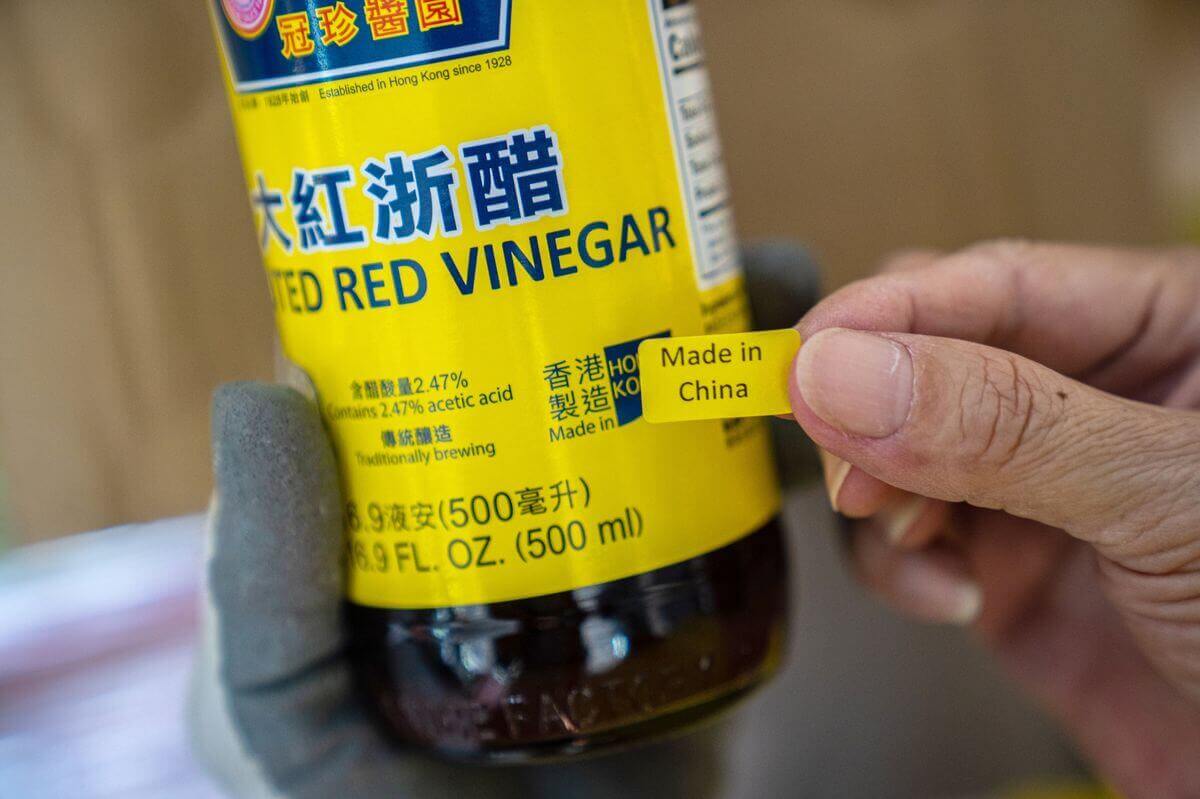The World Trade Organisation (WTO) ruled on Wednesday that the United States’ (US) requirement for products from Hong Kong to have a “Made in China” label violates international trade rules.
The three-member panel said in their order that the requirement contravenes Article IX:1 of the General Agreement on Goods and Tariffs, 1994, as it treats products from Hong Kong less favourably than those from other WTO members.
It also rejected the US’ claim that the change was necessary due to an “emergency in international relations,” which is the only way a country can trigger the exception.
Hong Kong celebrated the decision, with Secretary for Commerce and Economic Development Algernon Yau saying that the panel rightly recognised China and Hong Kong as “separate customs territories.”
WTO panel finds that the US requirement for Hong Kong products to be labelled "China" is discriminatory. Despite the seemingly banal topic, the case became another "essential security" dispute, with the US defending the requirement under GATT Art. XXI. 1/5 https://t.co/4DYPMuCNC1 pic.twitter.com/MOfmR0NPP9
— Geraldo Vidigal (@VidigalGeraldo) December 21, 2022
He criticised the US’ unilateral attempts to implement discriminatory and unfair trade measures and accused it of unreasonably suppressing Hong Kong’s trade market.
Yau said the labelling requirement politicises trade-related issues, calling it a “vain attempt” to interfere in Hong Kong’s internal matters by using trade as a weapon. He revealed that he had written to the US trade representative to demand urgent action following the panel’s order.
The minister reiterated the special administrative region’s “one country, two systems” arrangement with China, which attributes a special status and demarcates Hong Kong as a special customs territory and a separate WTO member.
As per the agreement reached when the United Kingdom returned Hong Kong to China in 1997, Hong Kong was to remain an autonomous region for 50 years and have its own currency, judicial systems, and language.
Statement from @USTRSpox on the World Trade Organization (WTO) panel report on the Hong Kong origin marking dispute. pic.twitter.com/Qz4u67uFxm
— United States Trade Representative (@USTradeRep) December 21, 2022
There are growing indications, however, that China is attempting to bring this date forward, as evidenced by a number of changes it has instituted in Hong Kong over the last few years. For example, it passed the national security law in 2020, which outlaws various forms of dissent. It has since imposed a number of restrictions on media freedoms and political independence. It also passed a ‘loyalty law’ last year, whereby candidates who are deemed disloyal to Beijing are not allowed to contest local elections.
Keeping such developments in mind, the US ‘strongly rejected’ the WTO’s decision, calling it a “flawed” interpretation of the rules and saying the organisation has overreached and gone beyond its mandate.
A statement by the Office of Trade Representative Adam Hodge said that the US “does not intend to remove the marking requirement” and would not surrender its decision-making authority to the WTO.
The official release noted that the US administration would remain committed to national security and protect human rights and democracy. It said Beijing’s attempts to dilute Hong Kong’s autonomy threaten US security.
The United States strongly rejects the deeply flawed WTO Panel regarding Hong Kong, China’s challenge to the requirement that its goods be marked as goods of China. We do not intend to remove the marking requirement as a result of this report. [1/3]
— Adam Hodge (@USTRSpox) December 21, 2022
The US can approach the Appellate Body of the WTO within the next 60 days. However, the dispute the US has obstructed the WTO’s trade dispute resolution body by blocking the appointment of judges to the organisation’s top court since December 2019, leaving it unable to resolve any international disputes.
The US first imposed the requirement on products from Hong Kong in October 2020, at which point it still considered and treated Hong Kong and China as separate WTO members, in order to protect its “essential security interests.”
Then-US President Donald Trump signed an order to make products from Hong Kong have a “Made in China” label, contending that the region did not have enough autonomy from China to be considered a separate territory. To this end, it reversed a 30-year-old policy by determining that Hong Kong would have “no special privileges, no special economic treatment and no export of sensitive technologies”.
Hong Kong subsequently filed a case with the WTO in October 2020. China and Hong Kong argued that the US’ demand would result in goods produced in Hong Kong being portrayed as ones produced in China, both of which are separate WTO members. They said this would result in Hong Kong products being treated differently from other countries’ products.
While the US accounts for merely 0.1% of the SAR’s exports but is nonetheless said to have created “unnecessary concern” for local manufacturers and “a lot of confusion” for consumers, said Yau.

